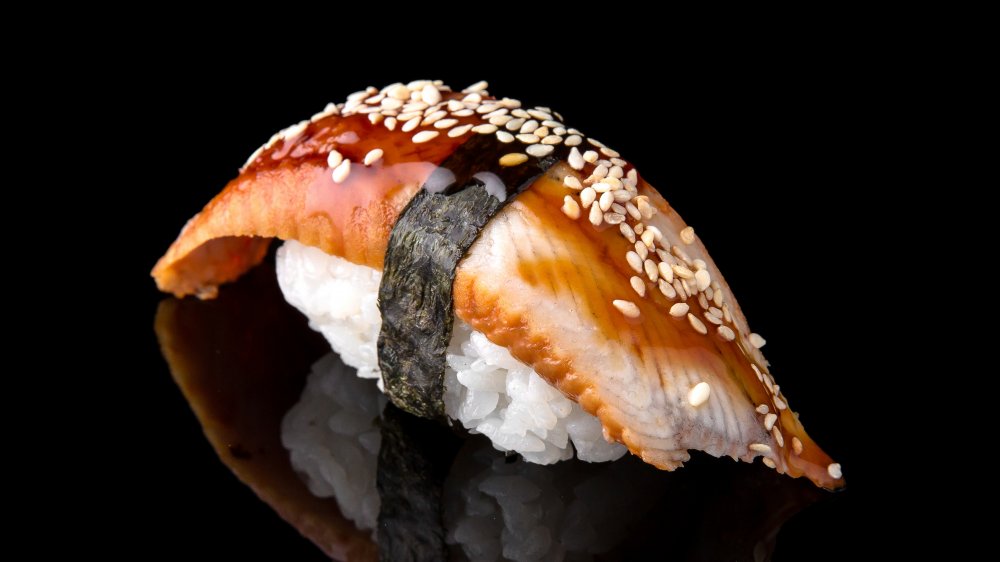You Should Never Eat American Eel. Here's Why
For every food that's having a heyday, there's one that's not quite as popular as it used to be. One such example is the American eel. It used to be all the rage in American cookbooks from the 19th century with recipes instructing hungry eel lovers on how to best prepare pickled eel, roast eel, fricasseed eel, baked eel, eel broth, fried eel, and other dishes (via Vintage Recipes and Cookery). In an article for Saveur James Prosek described the American eel as a former "North American staple."
For about a decade in the 1970s and 1980s, there was a significant American eel fishery with a harvest of between 2.5 million and 3.6 million pounds annually. Since then, the harvest has shrunk to only 781,615 pounds in 2018 which was an 8.24 percent decrease just from the year before (via the Atlantic States Marine Fisheries Commission)
Although the United States Fish and Wildlife Service has twice reviewed the status of the American eel, in 2007 and 2015, they found that the species did not merit protection on the United States Endangered Species List (via the United States Wildlife Service). Interpreting the situation differently, the International Union for Conservation of Nature added the species to their Red List in 2014 (via Scientific American).
The disappearing American eel
Eel has remained as popular as ever in Japan, where it serves as a sushi staple (via Sushi FAQ), and the rising popularity of sushi across the world has helped to hasten the decline of eel populations. After the 2011 tsunami decimated the eel stocks in Japan depleted the European eel population and then turned to American eels. Their consumption took a toll on the health of the fishery. Scientists have noticed a 50 percent drop in the population of American eels over the past decade.
In addition to the possibility of the American eel itself being driven to extinction, its disappearance from water systems across the country would have a significant impact on the health of the ecosystem as a whole. For example, mussels deposit their larvae on the eels, which spread them by swimming. Mussels are bivalves which are important in bodies of water to help to filter the water and keep water quality in good shape (via the National Ocean Service).
Due to warranted concerns about overfishing it might be wise to steer clear of American eel products. However, there may be notable exceptions. In Maine, a company called American Unagi (the Japanese term for freshwater eel) is raising farmed eels without the use of any hormones or antibiotics (via American Unagi). The company is run by the Maine Department of Marine Resources as well as the Atlantic States Marine Fisheries Commission to ensure that their operation is sustainable.

